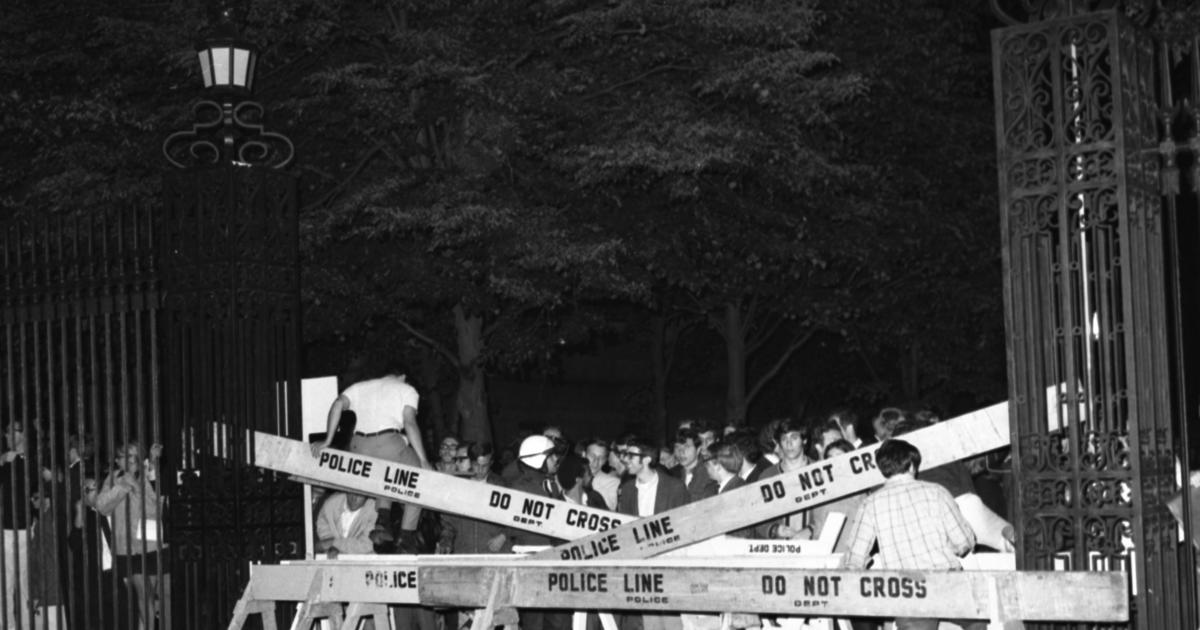FDA: Caffeine In Alcoholic Drinks 'Unsafe'
WASHINGTON (AP / WCBS 880 / CBS 2) - The Food and Drug Administration issued warning letters Wednesday to four manufacturers of alcoholic energy drinks often consumed by college students, saying the caffeine added to their beverages is an "unsafe food additive.''
The combination of caffeine and alcohol in the drinks creates a public health concern and can lead to "a state of wide-awake drunk,'' said FDA Commissioner Margaret Hamburg. Evidence has shown their consumption has led to alcohol poisoning, car accidents and assaults, she said.
Podcast
WCBS 880's Marla Diamond with reaction from the NYU campus
The government could eventually seize the products if the companies continue to make and market them. The companies have 15 days to respond to the letters and either explain how they will take their products off the market or defend their drinks as safe.
Several college students have been hospitalized in recent months after consuming the drinks. The FDA said experts have raised concerns that the caffeine in the drinks can mask a person's feeling of intoxication, leading to risky behavior. Many of those who consume the drinks are underage drinkers.
In response to such incidents, four states -- Washington, Michigan, Utah and Oklahoma -- have banned the beverages. Other states are considering similar action.
White House Drug Policy Director Gil Kerlikowske said Wednesday that the FDA's quick action to decrease consumption of the drinks is critical.
"These products are designed, branded, and promoted to encourage binge drinking,'' he said.
With the FDA decision imminent, Phusion Projects, which manufactures the popular Four Loko, announced late Tuesday that it would reformulate its drinks and remove the caffeine.
The company's statement said it was reformulating the drinks after unsuccessfully trying to deal with "a difficult and politically-charged regulatory environment at both the state and federal levels.''
"We have repeatedly contended - and still believe, as do many people throughout the country -- that the combination of alcohol and caffeine is safe,'' said Chris Hunter, Jeff Wright and Jaisen Freeman, who identify themselves as Phusion's three co-founders and current managing partners.
Four Loko comes in several varieties, including fruit punch and blue raspberry. A 23.5-ounce can sells for about $2.50 and has an alcohol content of 12 percent, comparable to four beers, according to the company's website.
The FDA said it views Phusion Projects' announcement as a positive step, but officials said they have not yet heard directly from the company about its timeline for taking the drinks off the market.
The FDA also issued warning letters to Charge Beverages Corp., New Century Brewing Co. and United Brands Company Inc.
Last year the FDA notified more than two dozen manufacturers of caffeinated alcoholic beverages that it never had specifically approved the addition of caffeine to alcoholic drinks and began studying whether it was unsafe and should be outlawed. The agency noted the mix's growing popularity among college students and its potential health and safety issues.
Wednesday's letters focused on seven drinks made by four manufacturers, but Deputy Commissioner Josh Sharfstein said he expects the agency's message to resonate.
"We expect these warning letters to be read across the industry,'' he said.
Robert McKenna, Washington State Attorney General, praised the FDA move after nine Central Washington University students were sent to a hospital in October after a party where the students drank Four Loko. He said the drinks' popularity has dangerously skyrocketed in the past two years.
"We can look around over the last couple of years and see something has changed, something is different,'' he said. "What we are seeing now is striking.''
(Copyright 2010 by The Associated Press. All Rights Reserved.)



